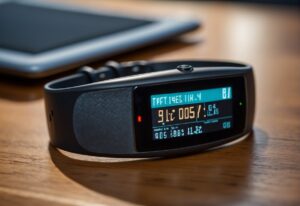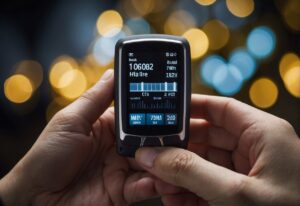Fitness trackers offer a way for seniors to monitor their activity and health metrics seamlessly. However, for those without a smartphone, the quest for a suitable fitness tracker can be challenging.
The ideal device for this demographic should not only be independent of a smartphone, but also simple to use, with clear displays and essential health tracking capabilities.
With advancements in technology, several fitness trackers on the market cater specifically to the needs of seniors, blending convenience with functionality.
Selecting the correct fitness tracker involves understanding the unique needs of older adults.
Devices with longer battery lives, straightforward interfaces, and features such as fall detection or reminders for medication can be immensely beneficial.
While a smartphone may enhance the functionality of these devices, it is not a necessity for their operation.
From wearables that offer basic step counting to more advanced options with built-in GPS, there is a range of fitness trackers that provide the necessary features without relying on a smartphone.
Key Takeaways
- Fitness trackers for seniors should prioritize ease of use and independence from smartphones.
- Essential features may include long battery life, fall detection, and health monitoring.
- Options range from simple step counters to advanced trackers with built-in GPS.
Understanding Fitness Trackers for Seniors
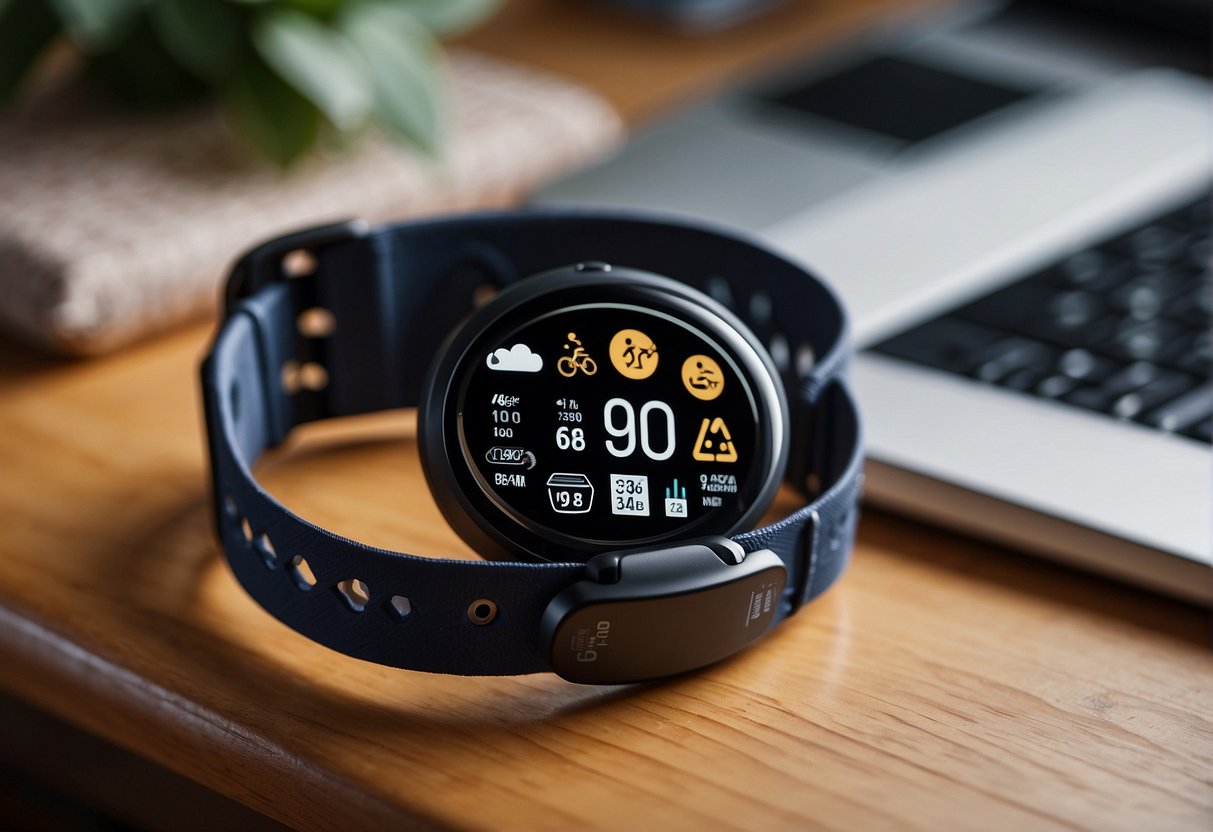
For seniors keen on maintaining healthy lifestyles, fitness trackers present valuable tools to monitor their physical activity.
They cater to various needs and can function independently, without the necessity of a smartphone.
These devices can be indispensable for older adults who seek to stay active and track their health but may not be as comfortable with complex technology.
Key Features of Fitness Trackers for Seniors:
- Ease of Use: Large displays and simple interfaces ensure readability and navigability.
- Health Monitoring: Trackers may include heart rate monitors, step counters, and sleep trackers.
- Battery Life: Longer battery life means less frequent charging, beneficial for seniors who prefer simplicity.
Manufacturers often design fitness trackers with senior users in mind.
The emphasis is on providing clear and large font displays, straightforward menus, and buttons over touchscreens, which might be challenging for those with limited dexterity or vision.
Health Benefits:
- Encourages Activity: By setting goals, seniors are motivated to move more.
- Monitors Exercise: Tracks different types of physical activity, whether it’s walking, swimming, or cycling.
- Vital Sign Tracking: Some devices monitor heart rate and other vital signs, important for health awareness.
Many fitness trackers for seniors without smartphones also focus on safety features such as fall detection, a critical component for older individuals living alone.
The inclusion of such features underlines the importance of health and safety in this particular demographic.
Key Features to Consider
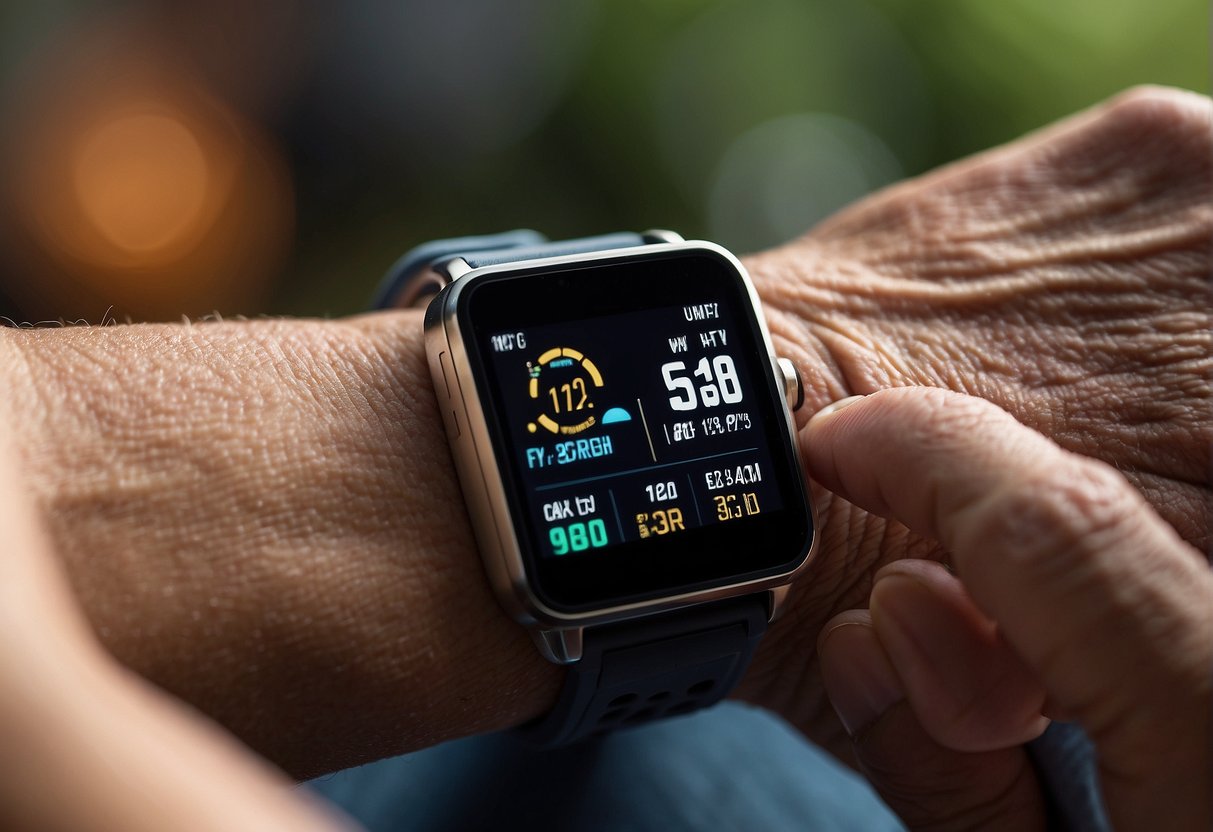
When selecting a fitness tracker for seniors without a smartphone, certain features command attention — usability, health-related functionalities, and the practicality of battery longevity and device connectivity are paramount.
Ease of Use and Comfort
Fitness trackers for seniors should prioritize a user-friendly interface that minimizes complexity.
Large, clear displays and buttons facilitate easier navigation.
In terms of comfort, lightweight designs with adjustable bands are preferable to accommodate various wrist sizes and ensure the watch remains comfortable to wear throughout the day.
A device like the Garmin Vivoactive 4 stands out for its ease of use.
Health Monitoring Capabilities
Seniors benefit greatly from health monitoring features such as heart rate tracking, sleep patterns analysis, and fall detection.
These devices often include reminders to take medication or move after periods of inactivity.
Advanced sensors may also monitor blood oxygen levels, providing comprehensive health tracking capabilities.
For robust health monitoring, the Suunto 9 Baro offers these essential features along with a barometer for additional environmental data.
Battery Life and Connectivity
Long battery life is essential since frequent charging may be a hassle.
Fitness trackers with extended battery life that can last for days, or even weeks, on a single charge help ensure continuous activity monitoring.
While the devices discussed do not require a smartphone to function, some may offer the option to sync data with a computer or tablet if desired, even without Bluetooth or smartphone connectivity.
The Fitbit Versa 2, for example, though easily linked to iOS or Android devices, can store data independently from a smartphone.
Popular Models and Alternatives

In the landscape of fitness trackers for seniors who do not use smartphones, several models stand out for their ease of use and health tracking features. While some are standalone devices, others offer smartwatch capabilities with a focus on health and connectivity.
Fitness Tracker Models Without Smartphone Requirement
For seniors seeking a fitness tracker that operates without a connection to a smartphone, there are distinct options available.
The Garmin Vivoactive 4 stands out with its user-friendly interface and comprehensive health tracking capabilities.
Not needing a smartphone, it includes features like fall detection, medication reminders, and even social components to enhance motivation.
Another choice is the Fitbit Charge 4, which, despite being a successor to the Charge 3, offers built-in GPS and can be utilized independently of a phone.
A different model, the Garmin Vivomove HR, offers a classic watch appearance with fitness tracking features.
This device tracks steps, monitors sleep, estimates heart rate, and provides stress tracking without requiring a smartphone.
Smartwatches with Health Features
Moving beyond basic trackers, there are smartwatches like the Apple Watch SE and the Apple Watch Series 3 that go beyond fitness tracking.
They can measure heart rate, track activity and workouts, and have incident detection.
Though they are designed to work best with an iPhone, they can still offer significant utility without one by tracking exercise and health statistics that can be checked directly on the watch.
For those who look for a more dedicated sports watch, the Garmin Forerunner 245 Music offers advanced tracking for running and other sports, along with music storage capabilities.
It also delivers key insights on workout performances and progress to help adjust one’s training and energy levels.
The Fitbit Versa 2 supports seniors looking to monitor their health and fitness.
Despite its advanced features, it provides a large display for easy reading and can be used without a smartphone, though pairing with one can offer additional functionalities like receiving texts and calls.
Making the Right Choice
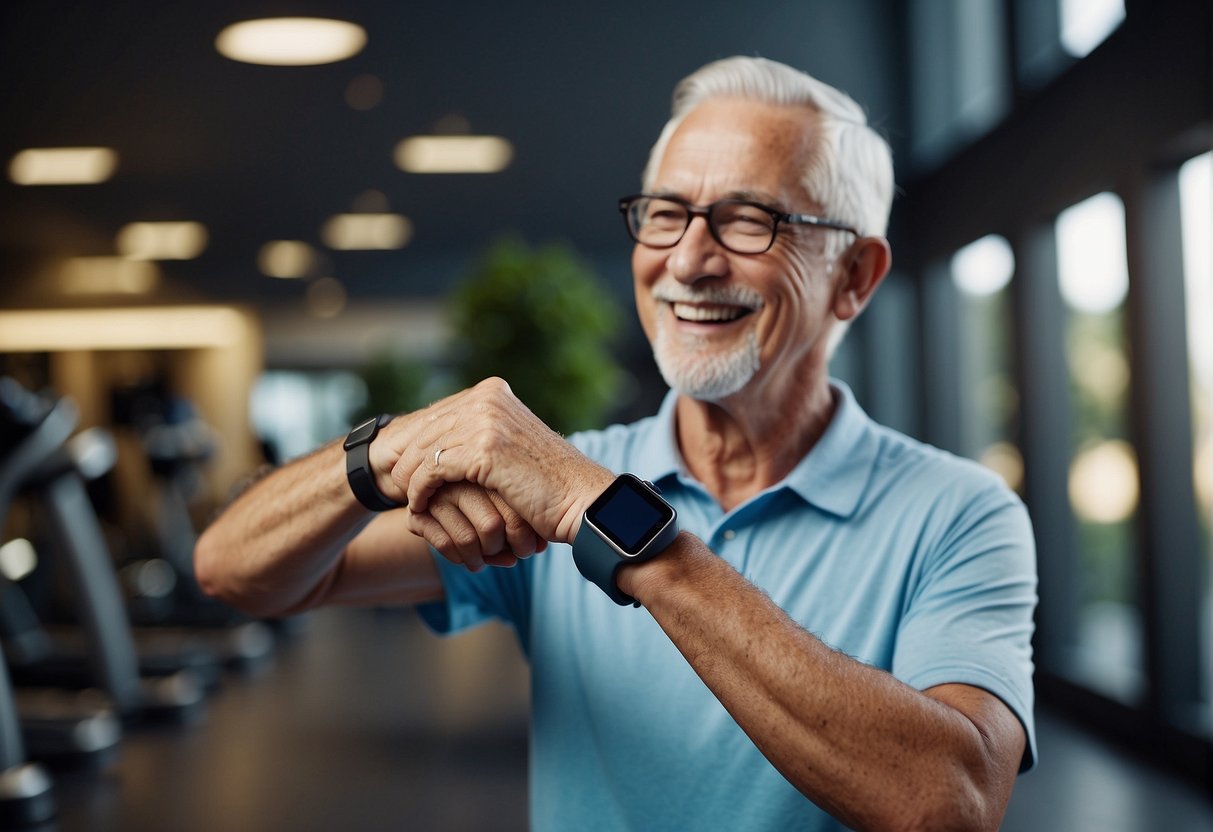
When selecting a fitness tracker for seniors without a smartphone, there are several key factors to consider:
-
Price Range: Fitness trackers come in various price points.
-
Affordable options are available that offer basic tracking features, while higher-priced models may include advanced health metrics and GPS tracking.
-
User-Friendliness: Since the device will be used without a smartphone, ease of use is crucial.
-
Devices with a simple interface, clear instructions, and large, readable displays are preferable. The Garmin Vivoactive 4 is noted for its user-friendly interface.
-
Quality: The durability and build quality of the tracker are important, especially for wearers who are active or may require a more rugged device.
-
Health and Fitness Features: Look for trackers that monitor essential health metrics such as steps taken, calories burned, and heart rate.
-
Some models come with built-in GPS trackers, making them ideal for seniors who enjoy outdoor activities.
-
The inclusion of a medical alert system can be a valuable feature for emergency situations.
-
Health Metrics and Heart Rate Tracker: Advanced trackers provide detailed insights including sleep patterns, blood oxygen levels, and stress monitoring.
-
Devices like the Fitbit Versa 2 are equipped to track such metrics thoroughly.

